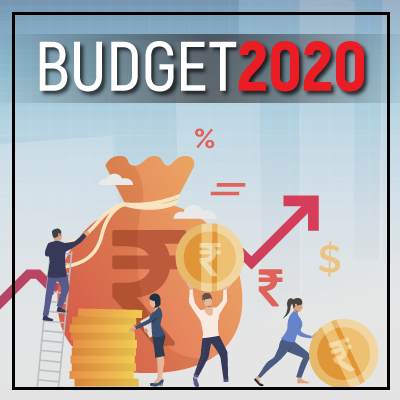

Continuing its commitment for further strengthening the national infrastructure till the last mile, Finance Minister Nirmala Sitharaman has presented a progressive budget and touched upon every section of the economy, says Anshuman Magazine, Chairman & CEO-India, South East Asia, Middle East & Africa, CBRE. He further adds that it is noteworthy that she stressed upon building on aspirational India in order to boost the standard of living; economic development for all; and building a humane and compassionate society. He shares his views on the Budget 2020 Outcome...
The allocation of Rs 100 trillion for infrastructure development in the next five years is a move in the positive direction. Increased focus on projects including housing, safe drinking water, clean energy, health, modern railway, airport, metro bus etc. will lead to increased benefits for the real estate sector. The budget reiterated that by aiding skill development for the infrastructure sector, India is poised to be a growing economy also backed by demographic strength and macro-economic fundamentals. In line with the economic growth, it is also commendable that 100 more airports will be developed under the PM UDAN Scheme which will go a long way in promoting regional connectivity.
The FM presented a well-structured budget and has ensured that all the components of infrastructure building such as roads, airports, logistics and warehousing, sea ports, information technology, transport, housing and skill development are woven together to augment the effort made by each other.
The government has paid due emphasis on boosting job creation, skill development and creation of five new smart cities, which in turn should redefine the next era of urban innovation. With Data centres proving to be the next big opportunity for India, FM aptly mentioned the introduction of a new policy to build data centre parks through the country. Increased allocation for the development of eco-development corridors, strategic highways, coastal and port roads, railways, etc, will further pave the way for boosting core sectors, thereby creating a multiplier effect on the economy. Overall, hospitals, educational institutions and manufacturing facilities are expected to boost up the demand in real estate and construction sector.
The announcement made by the FM for bringing relief to NBFCs will prove to be helpful in addressing the liquidity situation in the real estate industry. This is further expected to improve sentiments among the financial institutions and credit options for big and small developers.
The government further renewed its commitment for promoting the housing sector and extended the tax relief upto Rs 1.5 lakh on loans taken under affordable housing schemes. This is aptly matched by the tax holiday announced on profits made by developers involving affordable housing projects till March 2021.
It is also important to note here that government has earmarked Rs 30 billion for skill development and provide the required training in order to match the anticipated increase in skilled manpower across all sectors of the economy.
The real estate industry also appreciates the allocation of Rs 356 billion for meeting the nutritional requirements of people across all age group. Real estate sector being the second largest job provider in the country, after agriculture, also appreciates the decision to put in place policies for establishing logistics hubs and data centres across the country.
Today’s budget has provided the much-needed hope to the infrastructure and real estate industries and will go a long way in ensuring an integrated development of both the sectors.